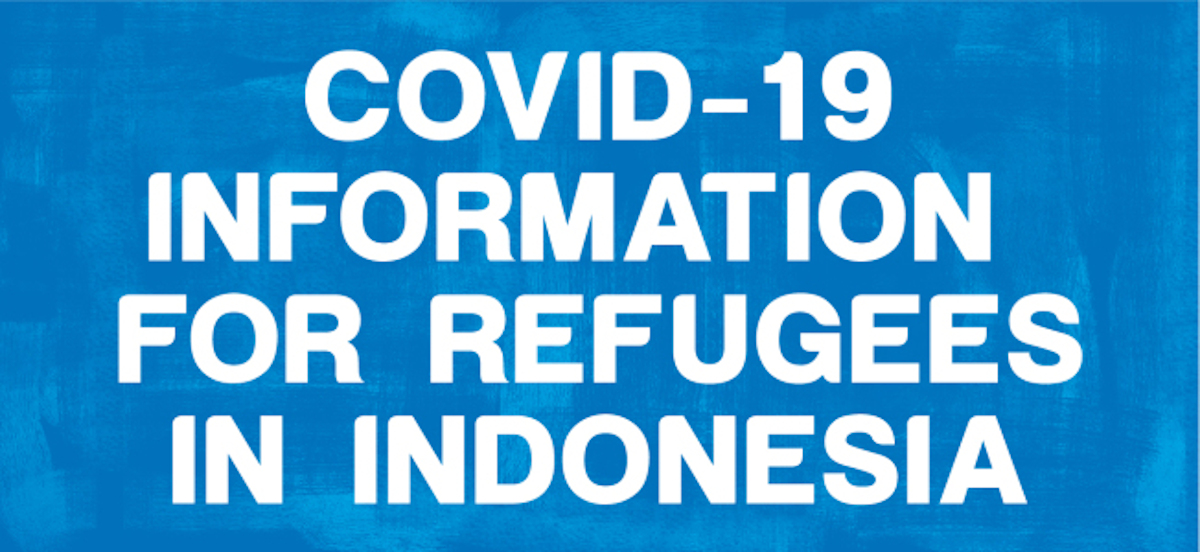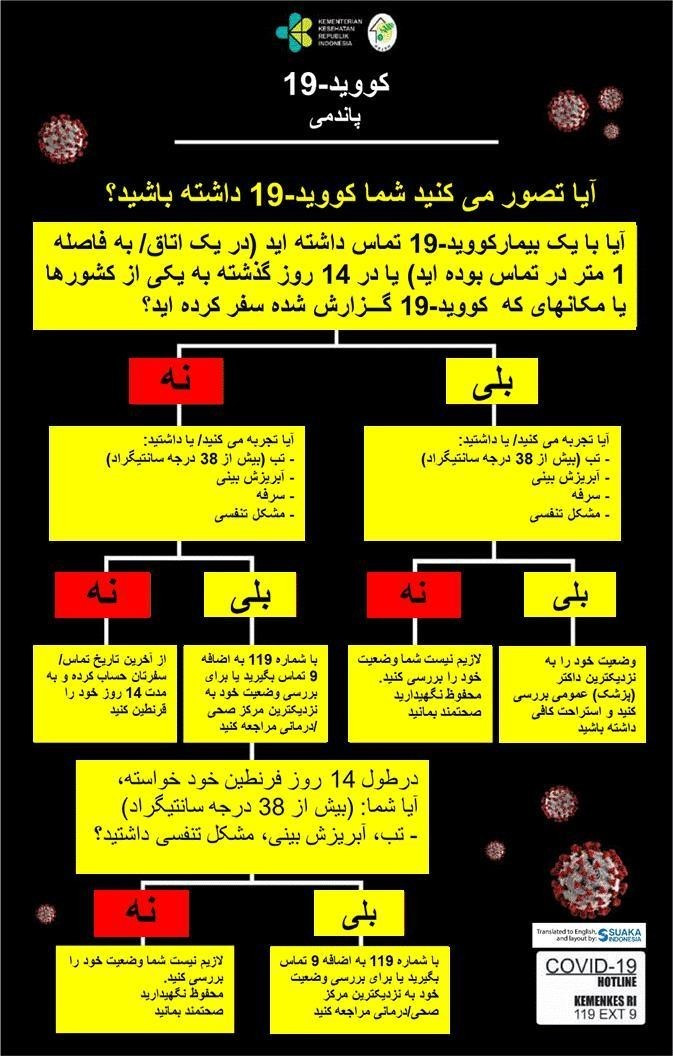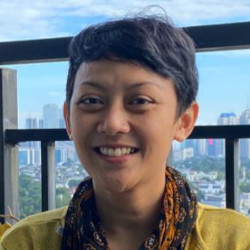 Covid-19 has spread in all provinces of Indonesia, and has impacted refugees and asylum seekers. Like everyone else at the beginning of the pandemic, they had difficulties obtaining surgical masks and hand sanitisers, and faced the skyrocketing prices of basic food items. They also had to adjust to changes in the policies of the local government, particularly on large-scale social restrictions in Jakarta and its surrounding areas, including Bogor. At the same time, refugee children and community teachers had to adapt to online learning and its challenges. But even more so, as refugees and asylum seekers, they are faced with the difficulty of accessing correct and accurate information on Covid-19 in their own language.
Covid-19 has spread in all provinces of Indonesia, and has impacted refugees and asylum seekers. Like everyone else at the beginning of the pandemic, they had difficulties obtaining surgical masks and hand sanitisers, and faced the skyrocketing prices of basic food items. They also had to adjust to changes in the policies of the local government, particularly on large-scale social restrictions in Jakarta and its surrounding areas, including Bogor. At the same time, refugee children and community teachers had to adapt to online learning and its challenges. But even more so, as refugees and asylum seekers, they are faced with the difficulty of accessing correct and accurate information on Covid-19 in their own language.

The need for translating Covid-19 information to the native languages of refugees surfaced during refugee consultation meetings facilitated in April and May by Jesuit Refugee Service (JRS) and one of its closest networks, SUAKA, an Indonesian civil society association for refugee rights protection. These consultations aimed to identify the needs gap by listening to the refugees and identifying refugee groups with the capacity to respond to the conditions that arise in their communities.
One of the outcomes of the consultations was to create a WhatsApp group for exchanging Covid-19-related information to refugee communities as far and wide as possible. This group consists of JRS Indonesia, SUAKA, and volunteer interpreters, teachers, and refugee representatives in Jakarta and Bogor. The values which underpin this group are accountability, voluntarism, collaboration, and inclusiveness.
In addition to the WhatsApp group, JRS and SUAKA also carried out a translation project to bridge the information gap. With the help of community interpreters, including refugees themselves, information on Covid-19 were translated into Farsi, Arabic, and Somali languages, and made available on the SUAKA website and shared within refugee communities.
The project received positive feedback. NA, an active community member, said she found the information, particularly on lockdowns and government policies, extremely useful. “I also receive the information in a very simple way that I could understand. It helps me and the people I know to be safe,” she said.
“I think the information is really useful,” shared SQ, a married woman in Jakarta who speaks only in her native language. “We can take care of ourselves and our family. It reminds us to wear a mask, wash our hands, and change our clothes when we come home after a trip outside.”
As the project progressed, the refugee communities and JRS became aware of the need to reach out and share the information with refugees who are illiterate. JRS, in collaboration with the refugee-led initiative, Skilled Migrant and Refugee Technicians (SMART), produced videos and audio-slide narrations on Covid-19 in Farsi, Arabic, and Somali languages that are accessible on the SUAKA website and SMART YouTube channel.
All throughout the process, from brainstorming to implementation, the refugees’ participation was very motivating. It was a demonstration of the skills and capabilities of refugees to contribute to their community amid their difficult situation. Their role in responding to the pandemic is a very crucial one.

Elsza A Fitrishiana is the Information and Advocacy Officer of Jesuit Refugee Service Indonesia.

